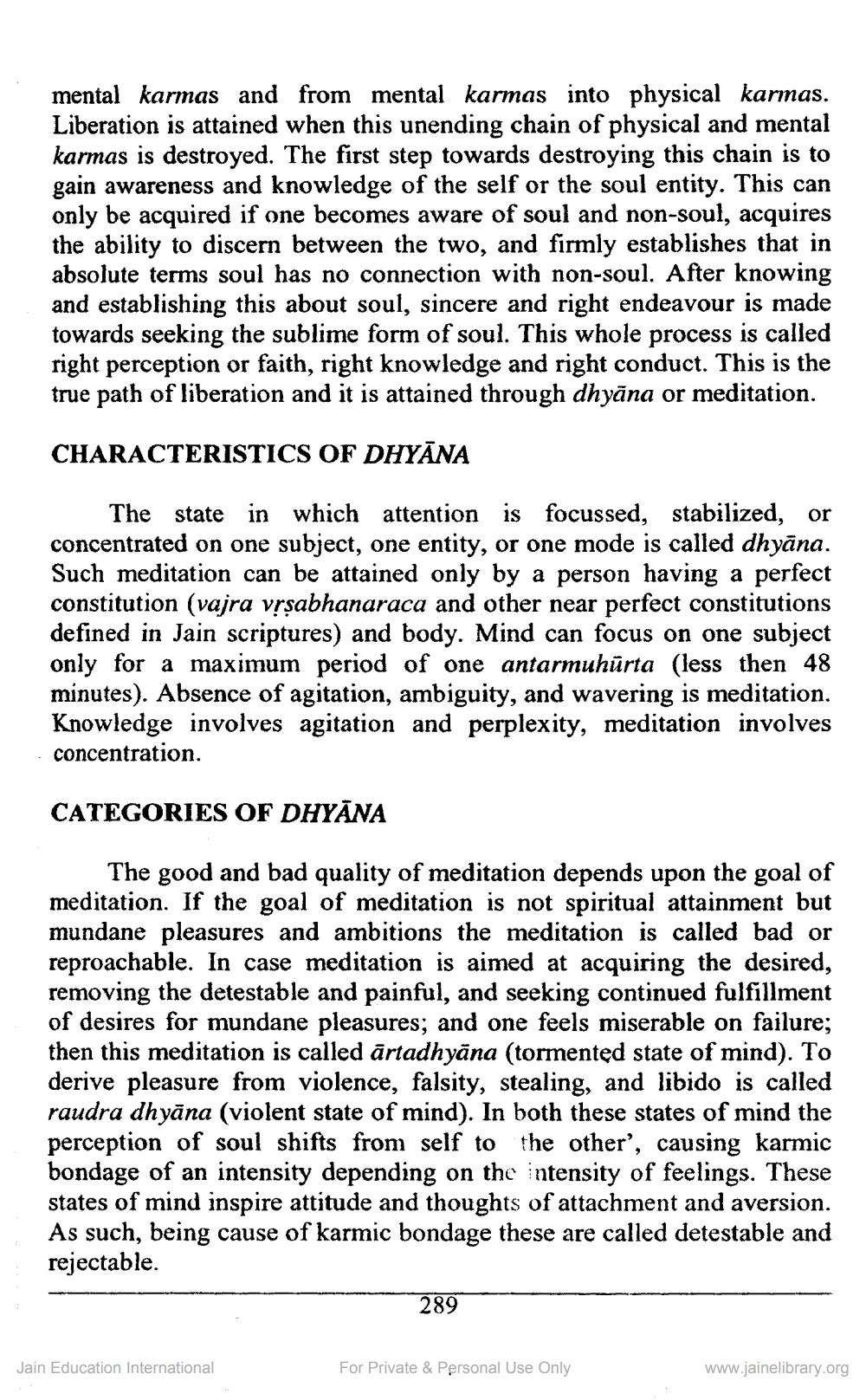________________
mental karmas and from mental karmas into physical karmas. Liberation is attained when this unending chain of physical and mental karmas is destroyed. The first step towards destroying this chain is to gain awareness and knowledge of the self or the soul entity. This can only be acquired if one becomes aware of soul and non-soul, acquires the ability to discern between the two, and firmly establishes that in absolute terms soul has no connection with non-soul. After knowing and establishing this about soul, sincere and right endeavour is made towards seeking the sublime form of soul. This whole process is called right perception or faith, right knowledge and right conduct. This is the true path of liberation and it is attained through dhyāna or meditation.
CHARACTERISTICS OF DHYĀNA
The state in which attention is focussed, stabilized, or concentrated on one subject, one entity, or one mode is called dhyāna. Such meditation can be attained only by a person having a perfect constitution (vajra vrsabhanaraca and other near perfect constitutions defined in Jain scriptures) and body. Mind can focus on one subject only for a maximum period of one antarmuhurta (less then 48 minutes). Absence of agitation, ambiguity, and wavering is meditation. Knowledge involves agitation and perplexity, meditation involves concentration.
CATEGORIES OF DHYĀNA
The good and bad quality of meditation depends upon the goal of meditation. If the goal of meditation is not spiritual attainment but mundane pleasures and ambitions the meditation is called bad or reproachable. In case meditation is aimed at acquiring the desired, removing the detestable and painful, and seeking continued fulfillment of desires for mundane pleasures; and one feels miserable on failure; then this meditation is called ārtadhyāna (tormented state of mind). To derive pleasure from violence, falsity, stealing, and libido is called raudra dhyāna (violent state of mind). In both these states of mind the perception of soul shifts from self to the other', causing karmic bondage of an intensity depending on the intensity of feelings. These states of mind inspire attitude and thoughts of attachment and aversion. As such, being cause of karmic bondage these are called detestable and rejectable.
289
Jain Education International
For Private & Personal Use Only
www.jainelibrary.org




